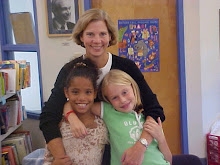In a study of owls in K-1 the curiosity is palpable. Is this owl alive? How did it die? Why are the feathers so soft? Why is it called a barred owl, or a horned owl? How do the wings work? Can I touch it? The questions rule the day. Observational drawings come next. Students are developing the skill of noticing details. And asking even more questions. And then the teacher brings out...the owl pellets...!
In this article in MindShift, How to Bring More Beautiful Questions Back to School, Katerina Schwartz contends that after about age 5 or 6, questioning falls off. Yet a questioning mind is a highly desired skill in any modern work place - it's the value added in the technology age.
For questioning minds to thrive, children need lots of time - not a curriculum that "covers" material. They need a culture that rewards intellectual risk-taking - not one that penalizes wrong answers.
Effective teachers set up a topic and trigger questioning - then find ways to follow where kids' curiosity takes them. They allow for a deep dive into a juicy problem or topic. What's the result? A classroom filled with knowledge addicts - confident kids who crave to question and to learn more.










